Senior Democrat Says Biden Will Continue Iran Talks As Long As Deal Possible
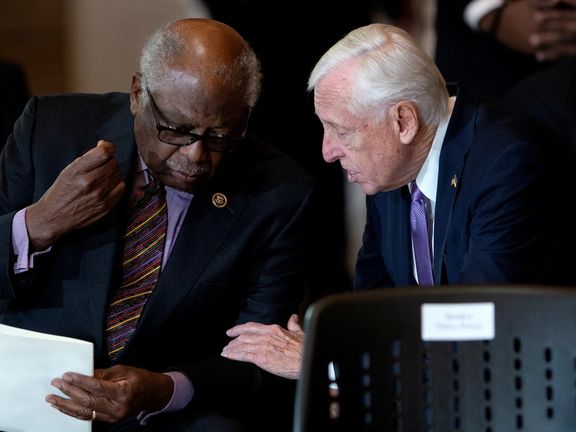
The Biden administration will continue talks with Iran for as long as they think a deal is possible, Rep. Steny Hoyer (D-Md.) told Iran International Friday.

The Biden administration will continue talks with Iran for as long as they think a deal is possible, Rep. Steny Hoyer (D-Md.) told Iran International Friday.
The Democratic Majority Leader in the House of Representatives added, “They believe this way, and the president is articulating that limiting the capacity of Iran producing nuclear weapon is a critically important objective. So, I think they would continue the talks as long as they think it's a possibility to get to an agreement.”
President Joe Biden launched indirect talks with Iran and other world powers one year ago to revive the 2015 nuclear agreement, abandoned by his predecessor in 2018. The talks have neared a conclusion, diplomats have said, but some sensitive issues remain to be agreed.
The key issue is Iran’s insistence that the United States should remove its Revolutionary Guard from its Foreign Terrorist Organization list. The Biden administration has not said whether it would reach a compromise with Tehran, but many politicians from both parties oppose such a move.
“IRGC is a terrorist organization. And I'm for continuing it being designated as a terrorist organization. I'm also in favor of dealing in this agreement with the non-nuclear malign activity pursued by the Iranians to destabilize the Middle East,” Hoyer told Iran International's Arash Aalaei.
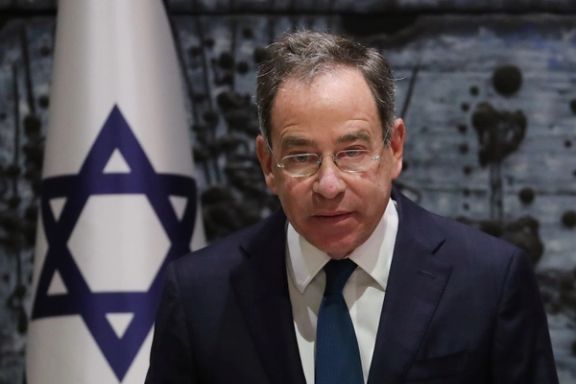
The US envoy to Israel says the country can do whatever it needs against Iran and would not face any restrictions from US regardless of the result of nuclear talks.
Ambassador Tom Nides told Israel’s Channel 12 news on Thursday, “Israel can do and take all the steps it needs to take to protect the state of Israel”.
He added that “If we have a deal, the Israelis’ hands are not tied. If we don’t have a deal, the Israelis’ hands are certainly not tied”, noting that “We’re not going to tell the government what to do”.
About briefing Israel on the latest developments of the Vienna nuclear talks to revive the 2015 Iran nuclear deal, the ambassador pointed out, “The Israelis know very clearly exactly what is going on. I’m not suggesting they necessarily like it always, but there are no secrets here”.
During a joint press conference with US Secretary of State Antony Blinken on Sunday, Israeli Foreign Minister Yair Lapid said, "We have disagreements about a nuclear agreement and its consequences, but open and honest dialogue is part of the strength of our friendship. Israel and the United States will continue to work together to prevent a nuclear Iran”.
There are media reports that an air defense pact between Israel and friendly regional countries is in the works to confront threats posed by Iranian drones and missiles.
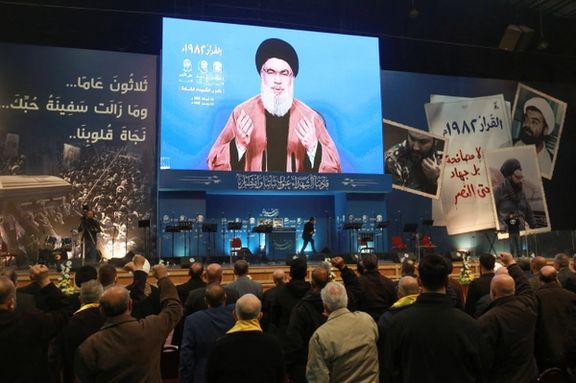
The Washington Free Beacon reports a draft law requiring the US government to explain how sanctions relief would affect Tehran’s dealings with Hamas and Hezbollah.
In the latest attack on efforts to revive the 2015 Iran nuclear deal, the JCPOA (Joint Comprehensive Plan of Action), House representatives Ronny Jackson, a Republican, and Stephanie Murphy, a Democrat, and 19 others called the Palestinian and Lebanese militant groups “Iranian proxies…waging operations against Israel.”
The Beacon reported that the “coalition of lawmakers are concerned that sanctions relief for Iran will embolden both terror groups and lead to an increase in terror strikes on Israel, which saw a wave of attacks that killed 11 citizens in the last two weeks.”
Two of these three attacks were carried out by ‘Israeli Arabs,’ Palestinians with Israeli citizenship, and one by a Palestinian from the occupied West Bank. While none was linked to the groups cited by the US legislation, Israeli has gone onto security alert fearing a repetition of last year’s ethnic clashes.
However, both Hezbollah and Hamas have praised the attacks as operations of “martyrdom” and both have long track records of organizing and carrying out attacks against Israeli civilians.
The Beacon quoted Jackson that “the United States cannot afford to ignore the threat posed by Iran-backed proxies.” It reported that AIPAC, the American Public Affairs Committee, was backing the bill, which would also require the Defense Department to report to Congress on other “Iran-backed entities,” including the Popular Front for the Liberation of Palestine, the Badr Organization (which is Iraqi), and Yemen’s Ansar Allah, widely known as the Houthis.
Unfrozen funds
The Beacon claimed that a provision in the bill that federal funds not “bolster…the listed terror groups” could “interfere with the Biden administration’s efforts to unfreeze Iranian funds that may be funneled to its proxy groups.”
Restoring the JCPOA, under discussion in Vienna for a year, would require the US lifting ‘maximum pressure’ sanctions levied by the Trump administration in 2018 on leaving the JCPOA. These threaten punitive action against third parties dealing with Iran’s financial sector or buying its oil, leaving billions owed Iran ‘frozen’ by banks wary of US action, especially in Asia.
While some argue that President Joe Biden requires Congressional support for JCPOA revival no more than Trump did for leaving it, Representative Michael McCaul, the lead Republican on the House Foreign Affairs Committee, told the Beacon he was hopeful eight Democrats would vote with the Republicans opposing the JCPOA.
State Department spokesman Ned Price on Friday repeated the administration’s arguments that Trump’s sanctions were ineffective in moderating Iran’s behavior, saying that Tehran-inspired attacks on US and its allies increased after 2018. While his claim about attacks on US interests is true, Iran was embroiled in the Syrian civil war, especially in 2015-2017, fighting to save Bashar al-Assad’s government, and entrenching itself on the Israeli border.
McCaul said that with Congressional mid-term elections due November “if Republicans take the majority, they will move to reimpose sanctions on Iran and nullify the terms of any deal Biden inks.”
The Beacon suggested that “with the ongoing war in Ukraine generating anti-Russia sentiment, provisions in the nuclear deal that empower and enrich Moscow will be a hard sell on Capitol Hill.” Russia and Iran signed an agreement in 2014 over nuclear power at Bushehr, which over the project’s life would see Tehran pay $10 billion.
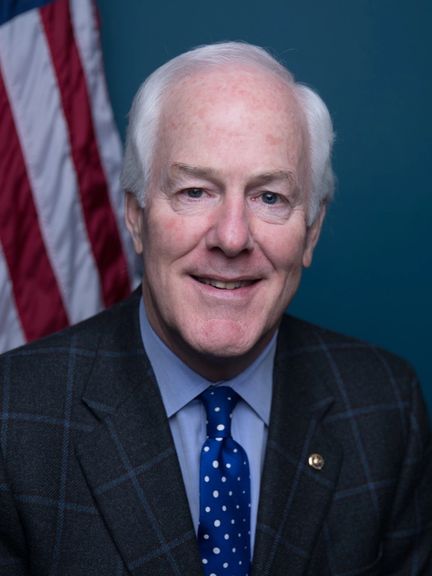
Republican Senator John Cornyn tells Iran International that he thinks the Vienna negotiations to revive the 2015 nuclear deal is “fundamentally flawed”.
He said on Wednesday that “any negotiation that stops short of preventing Iran from getting a nuclear weapon is fundamentally flawed.”
He added, "They haven't been talking to people in Israel or other allies of US that are worried about Iranian regime's threat both in terms of financing state terror as well as prospect of getting a nuke weapon and using that against our allies in Mideast".
He expressed doubt that the talks will lead to any tangible results, saying, “I don't have any confidence in the process right now”.
The nuclear talks have stalled mainly because of Iran’s demand for the US to remove the Revolutionary Guard (IRGC) from its terrorism list (FTO) and the recent missile attacks have shed more doubts whether President Joe Biden’s administration would take such a step.
The indirect US-Iran nuclear talks were close to an agreement in early March before last-minute Russian demands for sweeping guarantees that would have hollowed out sanctions imposed following its invasion of Ukraine derailed the talks.
Russia has since appeared to have narrowed its demands to cover only work linked to the nuclear deal, leaving a small number of issues to be resolved between Washington and Tehran, diplomats say.
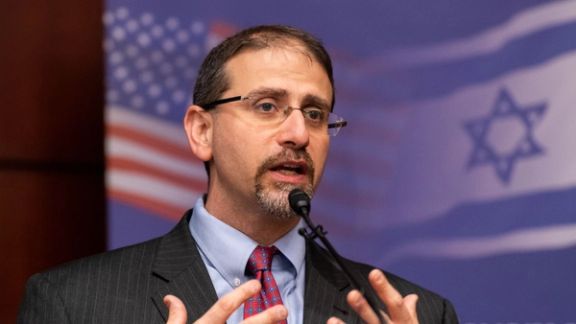
A veteran diplomat who was a former US envoy to Israel has quitted Biden's team at the nuclear talks to restore the 2015 deal with Iran.
According to Haaretz on Tuesday, Dan Shapiro -- who served as US ambassador to Israel under the Obama administration -- left Iran team after only seven months as a special government employee and part-time senior adviser.
Shapiro was known as the "Israel whisperer" in Special Envoy for Iran Rob Malley's team due to his deep understanding of the US-Israel relationship, and is expected to join Washington-based think tank Atlantic Council.
Richard Nephew and two other leading negotiators stepped down in recent months due to frustrations with the administration’s Iran policy.
Nephew, who is regarded as the architect of Washington’s sanctions on Iran and was serving as Malley’s deputy until early December, published a series of tweets mid-February to elaborate on the reasons behind his move.
Nephew said he stepped down from his post “due to a sincere difference of opinion concerning policy”, adding that “Although my views and record have been and continue to be mischaracterized by quite a few people, I do not intend to convey any further details at this time or in public, given the ongoing nature of discussions in Vienna”.
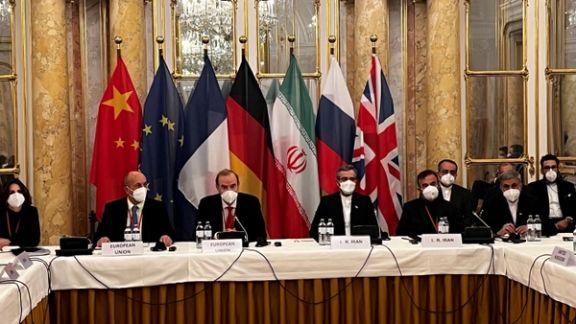
Another member of President Joe Biden’s Iran negotiating team has resigned amid growing criticism at home and abroad of an impending nuclear deal with Tehran.
Dan Shapiro, who served as US ambassador to Israel during the Obama administration and is a specialist on US Middle East policy, has left the Iran team led by Special Envoy Rob Malley after just seven months, Haaretz reported on Tuesday.
This follows the departure of sanctions expert Richard Nephew in December and two other members of Malley’s team. Although Shapiro has not expressed any misgivings about the way the nuclear talks have been handled in Vienna, Nephew in February disclosed in a series of tweets that he stepped down from his post “due to a sincere difference of opinion concerning policy.”
On Monday, Senator Chris Coons, a close supporter of President Joe Biden told Iran International he was apprehensive over the possibility that the US might remove Iran’s Revolutionary Guard from its list of Foreign Terrorist Organization (FTO). He also expressed deep misgivings about Iran’s regime, saying that its behavior on several fronts has become worse in the last two years.
Senior Republican Senator Lindsey Graham told Jewish insider on Monday that an Israeli strike on Iran appeared to be the most likely way to stop Iran from acquiring nuclear weapons. He ruled out that the Islamic Republic’s Supreme Leader Ali Khamenei would have a “change of heart” and using sanctions, although to an extent effective, could not guarantee the same outcome.
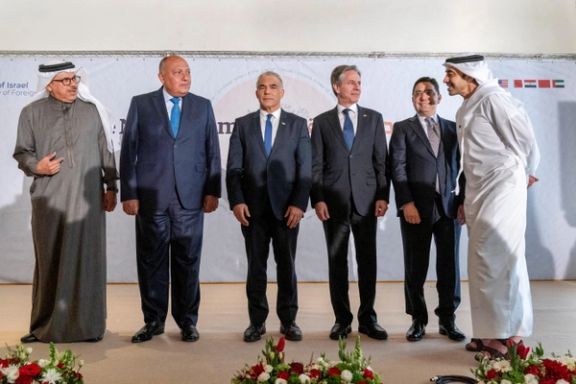
“If you don’t [understand] that, you’re making a huge mistake,” Graham told Jewish Insider. “This is never going to end short of a nuclear weapon unless somebody stops them.”
The Senator explained that he is putting together legislation that would require a close watch on Iran’s nuclear activities and a report to US Congress every 120 days about any “weaponization efforts, missile technology, proliferation and violations of International Atomic Energy Agency inspection regime.”
Graham maintained that if any Iranian deviation toward weaponization is observed, the White House would be required to come up with a plan to stop it.
Despite the recent ‘Negev Summit’ where Secretary of State Antony Blinken tried to show a mood of unity with Israel and Arab states that have normalized ties with Israel, deep concerns regarding the Biden Administration’s Middle East policies persist.
In an opinion piece published by the Jerusalem Post on Tuesday, Mohammed Alyahya, a Saudi researcher with the Hudson Institute argued that there is a serious “crisis” between Washington and Riyadh, smacking of a “divorce”.
Alyahya argued that since former president Barack Obama agreed to the 2015 Iran nuclear deal, the JCPOA, it became clear to Saudis that the US was abandoning its 70-year policy of protecting allies in the region. He agreed to a flawed deal in exchange for releasing billions of dollars to Iran’s Revolutionary Guards who arm militants around the region.
President Biden’s pursuit of renewing the JCPOA, which Donald Trump abandoned in 2018, is a continuation of the same Obama policy – or worse, Alyahya maintained.
Although his assessment might sound pessimistic, but a large-scale drone and missile attack om Saudi oil installation by Iran-backed Houthi forces past week inevitably reinforces the perception of a weak or indecisive US posture toward the Islamic Republic.
Historically, any threat to Middle East oil production would have solicited a decisive response from Washington – during the Cold War or in the following years. The swift and massive US reaction to Saddam Hussein’s invasion of Kuwait was a solid proof for regional counties.